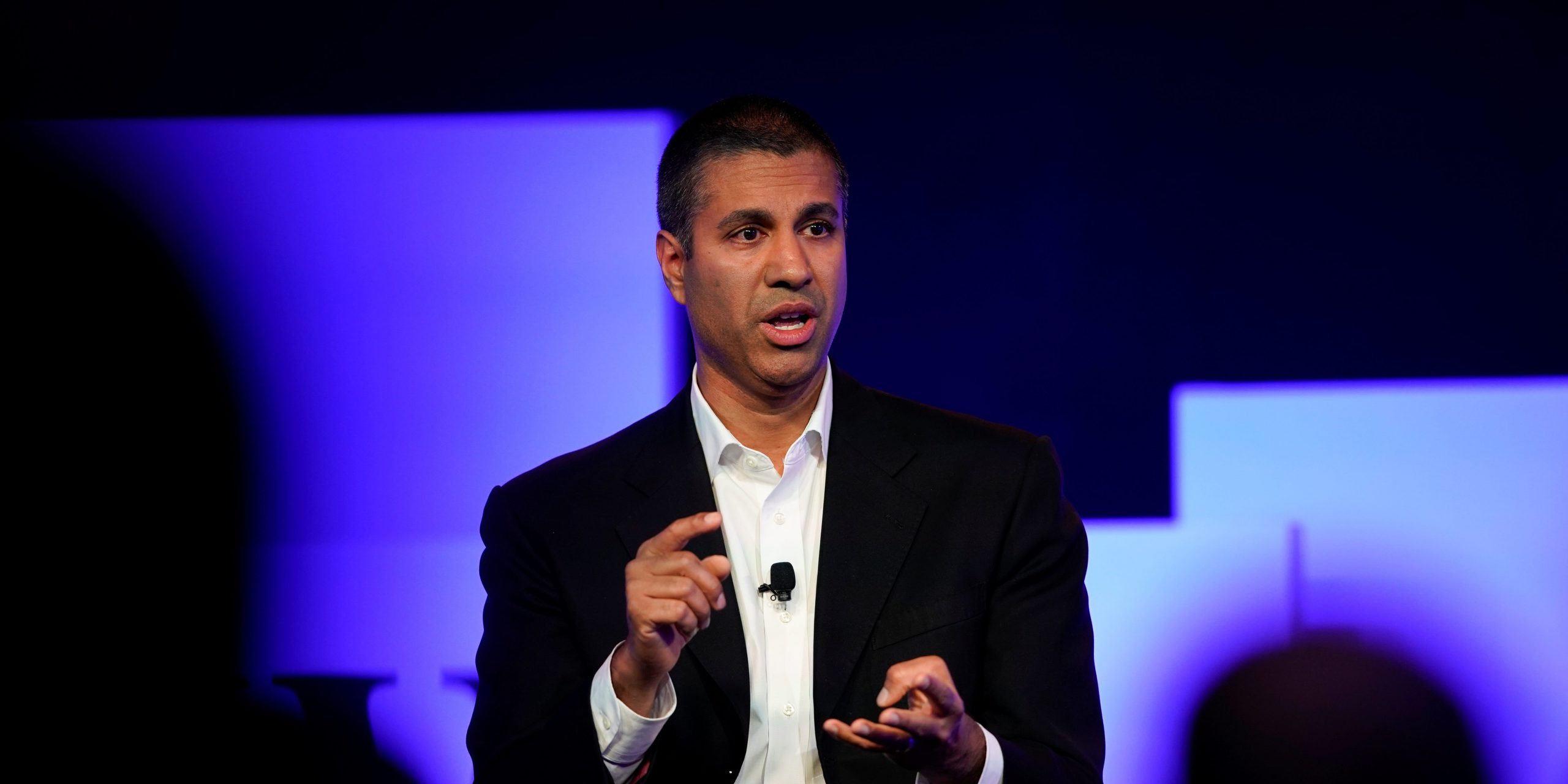
Reuters
- Net neutrality is the argument that all internet service providers (ISPs) must treat all forms of internet communication equally.
- This means an ISP cannot slow down or charge more for certain services or websites while also promoting others.
- The Federal Communications Commission passed a net neutrality law in 2015, but it was quickly dismantled under the Trump administration.
- Proponents of net neutrality have long championed a free and open internet, saying an internet without prohibition is essential for innovation and healthy competition.
- Visit Business Insider’s Tech Reference library for more stories.
Network neutrality is the concept that the internet must remain free, open, and without restriction, regardless of where or how you access it. In short, net neutrality means that any and all data should be treated equally when it jumps from cell tower to cell tower, not delayed, accelerated, or blocked.
But as it stands now, that’s not how it works.
Telecommunications companies get a say over how fast, or how slow, certain bits of content make their way to your smartphone, tablet, computer, or TV, which net neutrality proponents believe to be infringing on freedom of speech by enabling easy access to some networks and not others.
Advocates of net neutrality say internet service providers (ISPs) should be required to uphold certain rules to promote competition, or else some ISPs may start charging companies to retain preferential treatment on their networks, squashing all those who cannot afford to pay to play. This could possibly lead to ISP users paying extra to view content on Facebook and YouTube, for example.
The internet was created before the concept of net neutrality existed. With this knowledge in mind and the fact that the internet market has drastically changed since the early 2000s, some opponents of net neutrality argue that it unfairly benefits giants like Facebook, Google, and Amazon and cuts into investment. ISPs are not the only players anymore, although it is widely understood that these broadbands have been known to play the market by taking advantage of their power. The ongoing source of debate is how much federal legislation should have to do with regulating the internet, and whether it is necessary for economic growth and market competition.
A brief history of net neutrality
The term "net neutrality" was first coined in 2003 by Columbia University professor Tim Wu, who wrote a paper about how ISPs like AT&T and Comcast were prohibiting certain technologies, such as virtual private networks and Wi-Fi routers, from being used with the service they offered. Wu argued this practice of restriction would eventually hinder future innovation.
The Federal Communications Commission tried for nearly a decade to enforce net neutrality protections, but wasn't successful in court until 2015, during the Obama administration, when ISPs were officially prevented from blocking or throttling traffic to quash competing sites or services, effectively making it a public utility.
This meant Comcast couldn't slow down your internet whenever you opened Netflix so that you would be incentivized to subscribe to its streaming service instead. ISPs also couldn't put content into "fast lanes" - meaning certain sites couldn't receive priority over others. And if the FCC found that it did, the ISP would face a fine.
But, in 2017, shortly after President Donald Trump was elected, the FCC's Republican-led board repealed the rules put into place just two years earlier. Trump-appointed FCC Chairman Ajit Pai dropped the restrictions against ISPs blocking or throttling content, essentially handing off the issue of net neutrality to the Federal Trade Commission to enforce. However, the FTC is an enforcement agency, so unless an ISP participates in antitrust activity, it cannot take action against it on net neutrality premises. Fair-competition laws are left in place as the primary method of regulation and protection against illegal net neutrality offenses.
What's next for net neutrality
At first, the four biggest wireless carriers in the US said they would not discriminate against data, but then began inhibiting mobile video content even when their networks weren't overloaded.
The future of the net neutrality fight lies with the courts, Congress, and states, and is continuously being assessed. Most recently, the Republican-led Senate indicated it would block the 2019 passing of the Save the Internet Act, which sought to reinstate the net neutrality rules that existed in 2017 and enact them into federal law. Nearly two dozen state attorney generals and a handful of consumer groups sued the FCC in a bid to block the new rules from going into effect in 2018. Washington, Oregon, and California have all passed their own version of net neutrality laws, working within FCC state guidelines.
After President-elect Joe Biden is inaugurated in January 2021, Pai will step down as FCC Chairman and the issue of net neutrality is expected to be relitigated.
Related coverage from Tech Reference:
-
7 ways to boost your Wi-Fi signal and improve your internet speed
-
'What is my IP?': Here's what an IP address does, and how to find yours
-
How to set up a VPN, or Virtual Private Network, to use the internet with more privacy and security
-
'What is a good internet speed?': The internet speeds you should aim for, based on how you use the internet
-
'Why isn't my internet working?': How to identify why you can't connect to the internet and troubleshoot accordingly

